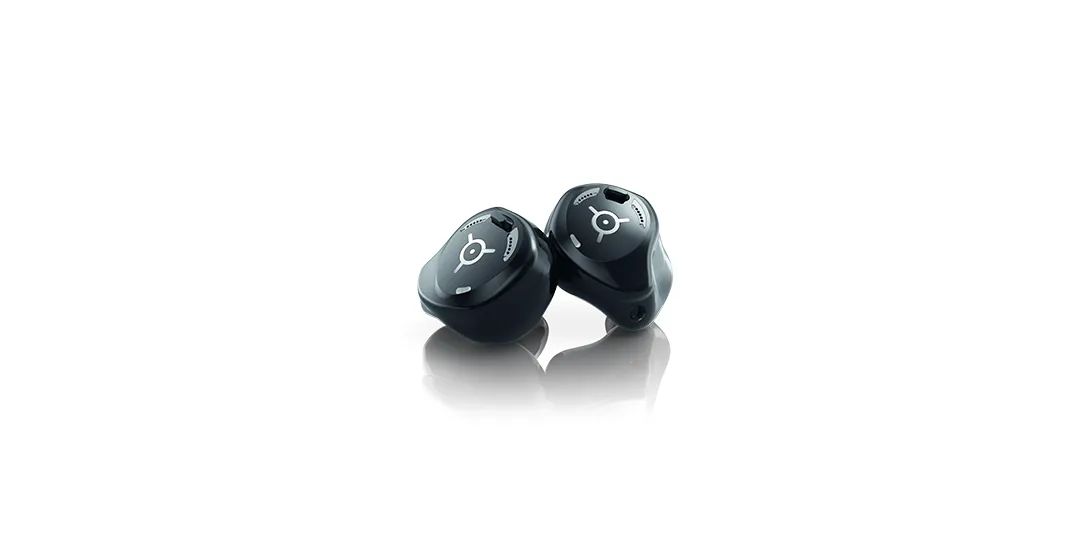6 common questions about managing hyperacusis

6 common questions about managing hyperacusis
6 min.
Publication Date: September 17, 2025
For people living with hyperacusis, everyday sounds can feel overwhelming. Things most people barely notice—clinking dishes, traffic noise, loud laughter—can trigger discomfort, pain, or even anxiety. It’s a condition that’s often misunderstood, but it can have a real impact on daily life.
To help shed light on this condition, we asked our hearing specialists your most common questions about hyperacusis, including what causes it, how it’s diagnosed, and what treatment options are available.
Q1: What is hyperacusis, and how can it affect daily life?
Hyperacusis is a condition where the ears become unusually sensitive to everyday sounds. It’s not just about finding loud noises unpleasant; people with hyperacusis often experience physical discomfort, pressure, or even pain when exposed to sounds that most people wouldn’t think twice about, like running water or a busy street.
This kind of sound sensitivity can make day-to-day life unpredictable. Things like grocery shopping, socializing at a restaurant, or even sitting in traffic can suddenly become overwhelming. Some people describe feeling anxious in anticipation of certain environments, which can lead to withdrawal or isolation over time.
What’s important to know is that hyperacusis isn’t a sign of “just being sensitive.” It’s a real condition with real impacts, but there are ways to manage it with the right care and strategies.
Q2: What causes hyperacusis, and who is most at risk?
There’s no single cause of hyperacusis, but it’s often linked to changes in how the brain processes sound. In many cases, it develops after some kind of auditory trauma or stressor, whether physical, emotional, or both. It can happen gradually or come on suddenly. Some common causes and contributing factors include:
Noise exposure, especially after a sudden loud sound like an explosion or alarm
Head injury or concussion
Ear infections or surgeries
Neurological conditions, such as migraines
Stress, anxiety, or PTSD, which can heighten sensory sensitivity
Hearing loss, which can sometimes change how the brain interprets certain frequencies
Anyone can develop hyperacusis, but it’s especially common among people who already have hearing-related conditions or heightened sensitivity to sensory input. It can also occur alongside other auditory disorders like tinnitus.
Q3: How is hyperacusis diagnosed?
Diagnosis usually begins with a detailed conversation—either with your healthcare provider, a hearing professional you’ve been referred you to, or certain specialists at Connect Hearing—about your symptoms and how they’ve been affecting your daily life. Many people describe discomfort or pain in response to sounds that never used to bother them, such as a baby crying or loud conversations in crowded spaces. That kind of input is helpful for understanding the bigger picture.
From there, you may undergo a hearing test to check for underlying issues such as hearing loss or tinnitus, which can sometimes occur alongside hyperacusis. You may also be assessed for sound tolerance using safe, controlled methods. The goal isn’t to “pass” or “fail” anything, but to understand how your auditory system is functioning and how it’s reacting to everyday sound.
What’s most important is that the process is collaborative. Whether it’s your primary healthcare provider, a referral, or an appointment with certain specialists at Connect Hearing, you won’t be rushed and your experience will not be downplayed. The next step will be building a foundation for treatment and helping you feel understood. For many people, just knowing there’s a name for what they’re experiencing is a reassuring first step.
Q4: What treatment options are available, and do they work?
Yes, many people with hyperacusis do find relief through treatment. While there’s no one-size-fits-all hyperacusis treatment, there are approaches that can significantly reduce sensitivity over time. The most common include:
Sound therapy, which uses gentle background noise to retrain how your brain processes sound
Counselling or education, often part of tinnitus or hyperacusis management programs
Hearing aids with sound filters when hearing loss is also present
These therapies work best when tailored to the individual. A hearing care provider can help you choose the right tools and guide you through the process gradually.
Q5: What sound sensitivity tips or lifestyle changes can make a difference?
Living with hyperacusis often requires some trial and error to figure out what makes day-to-day life more manageable. For some people, that means adjusting routines to avoid noisy environments or taking quiet breaks throughout the day. For others, it’s about learning how to stay calm when symptoms flare, since stress and anxiety can make sound sensitivity feel more intense.
The important thing is to listen to your body and pace yourself. Overprotection—like wearing earplugs all the time—can actually make symptoms worse in the long run, so we usually recommend a balanced approach. Surrounding yourself with soft background sound at home or choosing quieter social settings can help ease the load on your ears without cutting you off from the world.
It’s also worth remembering that your emotional well-being plays a big role. Strategies like mindfulness, breathing exercises, or simply talking to someone who understands what you’re going through can offer more relief than you might expect. It’s not just about managing noise; it’s about feeling more in control again.
Q6: Are there any tips for managing hyperacusis for the first time?
First of all, be assured that you're not imagining it. Hyperacusis is real, and you're not alone in what you're feeling. It’s common to feel overwhelmed or unsure of where to turn, especially if people around you don’t fully understand what you’re going through.
The best advice is to seek support sooner rather than later. The sooner we understand what’s happening, the sooner we can help you start to manage it. There are tools, therapies, and small lifestyle changes that can make a real difference, and the process doesn’t have to be intimidating.
If sound sensitivity is interfering with your life, book a free hearing test and talk to a hearing care professional at your local Connect Hearing. There’s no shame in asking questions—and often, just having a name for what you’re experiencing can be the first step toward feeling more in control.



